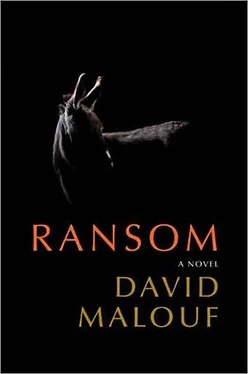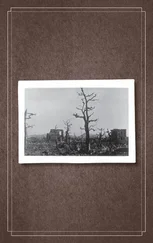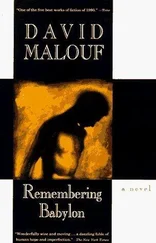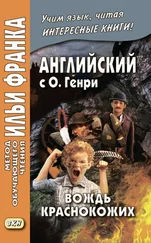‘Later,’ their keeper whispers as, crouched beside them and holding fast to their leads, he watches Achilles at his task. ‘Later, my loves,’ he tells them. ‘When he is finished with it.’
Achilles has remounted the car. A trail of dust billows behind him as he drives out across the plain. Ahead, the barrow with the bones of Patroclus, marking the spot where he had erected the pyre, a hundred feet long, a hundred feet wide, where Patroclus was burned.
Fat sheep and cattle had been slaughtered round the base. He himself had cut gobbets of fat from the carcasses and covered the body with them; laid precious two-handled jars filled with oil and honey against the bier, and cast four splendid horses on the pyre that screamed and shook fire from their coats when their throats were slashed. He had cut the throats as well of two of the nine dogs Patroclus kept, and dragged a dozen highborn Trojan prisoners to the place, all the time raging and weeping. And still it was not enough. Still his grief was not consumed.
All that great pile of offerings is gone now over the plain, as smuts and scattered ashes. Only the barrow remains, and the urn with his dear friend’s bones.
Achilles slows as he approaches it. The horses lift their feet in a ceremonial trot, the wheels of the chariot barely turning.
From the platform of the car, hawk-faced and grim, Achilles looks down. The tears he brings fall inwardly, his cheeks are dry. He glances back over his shoulder to where Hector lies face-down in the dust. All this, he tells himself, is for you, Patroclus.
But it is never enough. That is what he feels. That is what torments him.
With a jerk of the reins he pulls the horses to the left, and with a great shout sets them off at a furious pace to gallop once, twice, three times round the barrow, the body of Hector, as it tumbles behind, raising a dust cloud that swirls and thickens as if at that spot on the plain a storm had gathered and for long minutes raged and twisted while all around it the world remained still.
In the yard a thousand paces off, the grooms stand with shaded eyes, watching. The guards pause in their tasks around the camp.
Higher and higher the column climbs, spreading its branches. Then it stills, hangs, and comes sifting down in shadowy streaks like distant rain.
Achilles is driving back now. Leaden-limbed, covered from head to toe in dust. Grey-headed with it. His face, arms, clothes, hands caked with it. Like a man who has climbed out of his grave.
He is as fouled with dust as the thing — bloody and unrecognisable — that he trails from his axle-bar.
Tired now, his wrists like water, he drives to where the grooms wait in the yard.
It offends them, though they dare not show it, that he should bring back horses that just minutes ago went out glossy and sprightly on their feet, all ghostly grey and foaming.
He climbs down from the car. Says nothing as he throws the reins to the first man who comes running.
He will sleep now. Too tired even to wash, he goes immediately to his hut, rolls up in his cloak on a pallet in the corner and within seconds is drowned in oblivion.
Swiftness of foot is his special distinction among the Greeks: Achilles the Runner. The quickness of his spirit to haul air into his lungs, to feed their overplus of energy and lightness to his foot soles and heels, to the muscles of his calves, the long tendons of his thighs, is an animal quality he shares with the wolves of his native uplands, bodies elongated, fur laid flat as they run under the wind.
His runner spirit has deserted him. It is the earth-heaviness in him of all his organs, beginning with the heart, that he must throw off if he is to be himself again.
He is waiting for the break. For something to appear that will break the spell that is on him, the self-consuming rage that drives him and wastes his spirit in despair. Something new and unimaginable as yet that will confront him with the need, in meeting it, to leap clear of the clogging grey web that enfolds him.
Meanwhile, day after day, he rages, shames himself, calls silently on a spirit that does not answer, and sleeps.
Laid out on uneven ground along a rocky bluff, Troy is a city of four-square towers topped by untidy storks’ nests, each as tall as a man; of dovecotes, cisterns, yards where black goats are penned, and in a maze of cobbled squares and alleys, houses of whitewashed mud-brick and stone, cube-shaped and with open stairways that at this hour mount to dreams. On the flat roofs under awnings of woven rush, potted shrubs spread their heavy night odours, and cats, of the haughty small-skulled breed that are native to the region, prowl the parapets and yowl like tormented souls in their mating. Tucked in between rocky outcrops there are kitchen gardens, with a fig tree, a pomegranate, a row or two of lettuce or broad beans, a clump of herbs where snails the size of a baby’s fingernail are reborn in their dozens after a storm and hang like raindrops from every stalk.
Here for eleven nights another man has been wrestling with dark thoughts as he lies sleepless on his couch — but sleepless in his case, like so much else in his life, is a manner of speaking. It is what he feels is proper to his grief.
In fact he has slept, but so fitfully, picking his way past eddies of murky flame, and corpses heaped in piles round fallen archways or crammed into wells, that when he wakes it is to a deeper exhaustion.
The grief that racks him is not only for his son Hector. It is also for a kingdom ravaged and threatened with extinction, for his wife, Hecuba, and the many sons and daughters and their children who stand under his weak protection; and for Troy, once a place of refinement and of ceremonies pleasing to the gods, now, in the waking dreams that night after night trouble his rest, a burnt-out shell, whose citizens — though they believe themselves quietly asleep and safe in their beds — are the corpses he moves among: headless, limbless, savagely hacked, hovered about by ghostly exhalations and the fires of the dead. Flies cluster at their nostrils and the corners of their eyes. Dogs lick up the spatter of their brains, gnaw at their shoulder-bones and skulls and on the small bones of their feet. Above, among towering smoke trails, birds of prey hang waiting for the dogs to be done.
Priam groans, and the chamber servant on his cot at the entrance starts awake. ‘No, no,’ he calls, but weakly. ‘It is nothing. There’s nothing I need.’
The servant settles. The room falls still.
But something now is different. The air, as in the wake of some other, less physical disturbance, shimmers with a teasing iridescence.
Priam comes to attention. He knows from long experience what is expected of him. Stays ready but still.
Often, in the lapse of light in the chamber where he sits nodding, or in a leisure hour beside the fishpond in his garden, one or other of the gods will materialise, jelly-like, out of the radiant vacancy. An old, dreamlike passivity in him that he no longer finds it necessary to resist will dissolve the boundary between what is solid and tangible in the world around him — mulberry leaves afloat on their shadows, the knobbly extrusions on the trunk of a pine — and the weightless medium in which his consciousness is adrift, where the gods, in their bodily presence, have the same consistency as his thoughts.
Two of his children, his daughter Cassandra and the high priest Helenus, have inherited his powers, but in a form that sets a question against them. For all his reverence — he might say as a necessary part of it — he is wary in his dealings with the gods, who do not always act openly, or so he has discovered. He treads lightly in their presence.
Читать дальше












